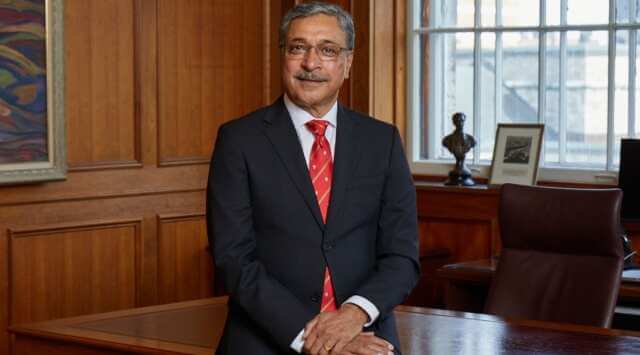
In a recent interview, Deep Saini, the Vice-Chancellor of McGill University in Canada, expressed concern about the large number of Indian youths leaving their home country in search of a better life. Saini, who was born and raised in India, understands the reasons behind this trend, but believes it is still a matter of concern.
According to Saini, the brain drain from India is a complex issue that requires a multifaceted solution. He acknowledges that there are many factors that contribute to this trend, including the lack of job opportunities, inadequate infrastructure, and political instability. However, he also believes that India has a lot to offer and that there are opportunities for growth and development within the country.
Saini encourages young people to explore the possibilities within India before making the decision to leave. He emphasizes the importance of education and the need to invest in oneself in order to succeed. Saini also believes that India needs to invest more in education and infrastructure in order to attract and retain talent.
As the Vice-Chancellor of McGill University, Saini is well aware of the challenges faced by international students who come to study in Canada. He believes that it is important for universities to create an environment that is welcoming and supportive for international students. Saini also emphasizes the need for universities to offer programs that are relevant and responsive to the needs of the global economy.
Overall, Saini is optimistic about the future of India and believes that the country has the potential to become a major global player. However, he acknowledges that there are challenges that must be addressed in order to achieve this goal. Saini encourages young people to be part of the solution and to work towards building a brighter future for themselves and for India.
Saini also highlighted the importance of fostering a culture of entrepreneurship in India, where young people are encouraged and supported to start their own businesses and drive economic growth. He noted that universities can play a key role in this regard, by providing incubation facilities, mentorship, and networking opportunities for students and alumni.
Moreover, Saini expressed concern about the trend of brain drain from India, noting that it represents a loss of talent and potential for the country. He emphasized the need to create an environment that is conducive to retaining talent and encouraging innovation. This includes investing in education, research, and infrastructure, as well as creating policies and incentives that support entrepreneurship and innovation.
In the interview, Saini also discussed the importance of diversity and inclusion in higher education. He noted that universities have a responsibility to promote diversity and ensure that all students feel valued and supported. This includes creating a welcoming and inclusive campus environment, as well as offering scholarships and other forms of financial support to students from diverse backgrounds.
Overall, Saini’s interview provides valuable insights into the challenges and opportunities facing higher education in India and around the world. As a leader in the field, he offers a unique perspective on the role of universities in driving innovation, addressing global challenges, and promoting diversity and inclusion. By listening to the voices of leaders like Saini, we can gain a better understanding of how we can work together to create a brighter and more inclusive future for all.









